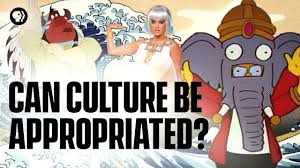What does being a ninja mean? : a person trained in ancient Japanese martial arts and employed especially for espionage and assassinations.
Is dressing as a Viking cultural appropriation? Yes, it would be cultural appropriation, most likely (though not all scandinavians are white!). Things aren’t getting more uptight, but rather, people are becoming more aware of how insensitive costume wearing can affect others, and why it.
What is Japanese ninja? Ninja (忍者, aka shinobi, meaning “those who act in stealth“) were a type of warrior who specialized in unconventional warfare such as infiltration, sabotage and assassination during the age of the samurai. Ninja employed deception and forgery tactics to take opponents out by surprise.
Is Kintsugi cultural appropriation? Going a bit deeper I learn that Kintsugi artisans from Japan are rightfully outraged by the “cultural appropriation” of using epoxy at all. Fine, so what do the Japanese use? Lacquer.
What does being a ninja mean? – Additional Questions
Is Pottery cultural appropriation?
Ceramics has alway been a field of cultural appropriation and there may have been little ceramic art without it. One of the most obvious cases is the appropriation of material culture both by and from Turkish potters.
What does kintsugi symbolize?
Kintsugi is the Japanese art of putting broken pottery pieces back together with gold — a metaphor for embracing your flaws and imperfections. “You won’t realize your full potential until you go through the tough times,” Kumai says. With that said, Kintsugi takes work and awareness in order for it to truly be healing.
What is the philosophy behind kintsugi?
Kintsugi fosters the idea that a broken object can be repaired and be made useful once again. It tells us we can always begin anew despite the past failures. Accepting imperfections helps us to break free from the obsession of perfectionism which causes unnecessary stress and inhibiting creativity and productivity.
Is kintsugi wabi sabi?
The Japanese practice that perhaps most exemplifies the spirit of wabi-sabi is kintsugi. Kintsugi is the art of golden joinery, in which broken objects – usually ceramics – are mended with gold-dusted lacquer. Kintsugi’s exact origins are unknown, but some historians date it as far back as the late 15th century.
How do you pronounce kintsugi phonetically?
What is another word for kintsugi?
Kintsugi (金継ぎ, “golden joinery“), also known as kintsukuroi (金繕い, “golden repair”), is the Japanese art of repairing broken pottery by mending the areas of breakage with lacquer dusted or mixed with powdered gold, silver, or platinum; the method is similar to the maki-e technique.
How do you pronounce wabi sabi?
How do you pronounce Tsugi in Japanese?
How do you say G in Japanese?
The Standard Pronunciation of the Japanese ‘g’
‘g’ is at the beginning of words pronounced just like it is normally pronounced in English words as “go” and “get”. When ‘g’ comes in the middle of a word it can be pronounced like ‘g’ or ‘ŋ’.
How do you pronounce the letter R in Japanese?
The Japanese “r” is different from the English “r”. The sound is sort of between the English “r” and “l”. To make “r” sound, start to say “l”, but make your tongue stop short of the roof of your mouth, almost in the English “d” position. It is more like the Spanish “r”.
What is the meaning of Shukudai in English?
homework; assignment pending issue; unresolved problem; open question
What is Amari in Japanese?
Meaning 意味
Learn Japanese grammar: あまり (amari). Meaning: so much… that. If you want to use this with an adjective, use あまりにも (amari ni mo) instead.
What is Renshuu in Japanese?
Etymologically, renshuu looks like this: 練習 (れんしゅう) – the kanji for “practice, drill, polish, refine” plus the kanji for “learn.” The suggested meaning therefore is to learn something through repetition, with the implication that a lot of repetition would also lead to refinement of technique.
What does Toki Doki mean in Japanese?
tokidoki, which translates to “sometimes” in Japanese, is an internationally recognized and iconic lifestyle brand based on the vision of Italian artist Simone Legno and his partners, serial entrepreneurs Pooneh Mohajer and Ivan Arnold.
What does Doki Doki mean in Japanese?
Doki Doki or doki-doki (Japanese: ドキドキ) is a term for the sound of a beating heart in Japanese sound symbolism.
Why is tokidoki so popular?
Since debuting in 2005, tokidoki has amassed a cult-like following for its larger-than-life characters and emerged as a sought-after global lifestyle brand. tokidoki offers an extensive range of products which include apparel, handbags, cosmetics, accessories, toys and more.
What is a okie dokie?
(oʊki doʊki ) also okey doke. convention. Okey dokey is used in the same way as ‘OK’ to show that you agree to something, or that you want to start talking about something else or doing something else. [informal, spoken]
